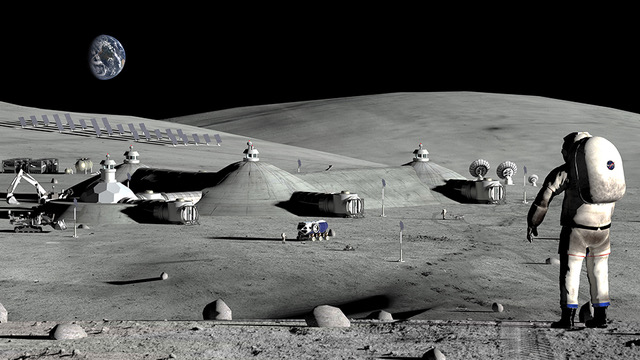The creation of safe and comfortable habitations is one of humankind’s oldest activities. Millennia of experimentation on Earth have brought the design and maintenance of our habitats to a high degree of sophistication. However, as we consider moving beyond the Earth’s relatively benign surface and out into Space, new obstacles related to these harsh and unknown environments will impede safety and progress.

An Earth-independent permanent extraterrestrial habitat system must function as intended under continuous disruptive conditions. Designing for the demands that extreme environments will place on long-term deep space habitats represents one of the greatest challenges in this endeavor. This context necessitates that we establish the know-how to establish deep space habitat systems that are resilient. Resilience is not simply robustness or redundancy: it is a system property that accounts for both anticipated and unanticipated disruptions via the design choices and maintenance processes and adapts to them in operation.
The NASA-funded Resilient ExtraTerrestrial Habitats Institute (RETHi) has the mission of leveraging existing novel technologies to provide situational awareness and autonomy to enable the design of habitats that are able to adapt, absorb and rapidly recover from expected and unexpected disruptions.
Prof. Shirley Dyke and team are establishing both fully virtual and coupled physical-virtual simulation capabilities that will enable them to explore a wide range of potential deep space SmartHab configurations and operating modes.
This presentation will discuss their approach, models being developed, methods for analysis, and progress to date. A discussion of the type of intra-team collaborations needed for such an endeavor will also be discussed, along with the lessons learned.
Professor Shirley Dyke holds a joint appointment in Mechanical Engineering and Civil Engineering at Purdue University. She is the Director of Purdue’s Intelligent Infrastructure Systems Lab and the Director of the NASA-funded Resilient ExtraTerrestrial Habitat Institute.
Dyke is the editor-in-chief of the journal, Engineering Structures. Her research focuses on “intelligent” structures, and her innovations encompass structural health monitoring and machine learning for structural damage assessment and reconnaissance support.
She holds a B.S. in Aeronautical and Astronautical Engineering from the University of Illinois, Champaign-Urbana, and a Ph.D. in Civil Engineering from the University of Notre Dame in 1996.
She was awarded the NSF Presidential Early Career Award for Scientists and Engineers (1998), the International Association on Structural Safety and Reliability Junior Research Award (2001), and the ANCRiSST Young Investigator Award (2006).